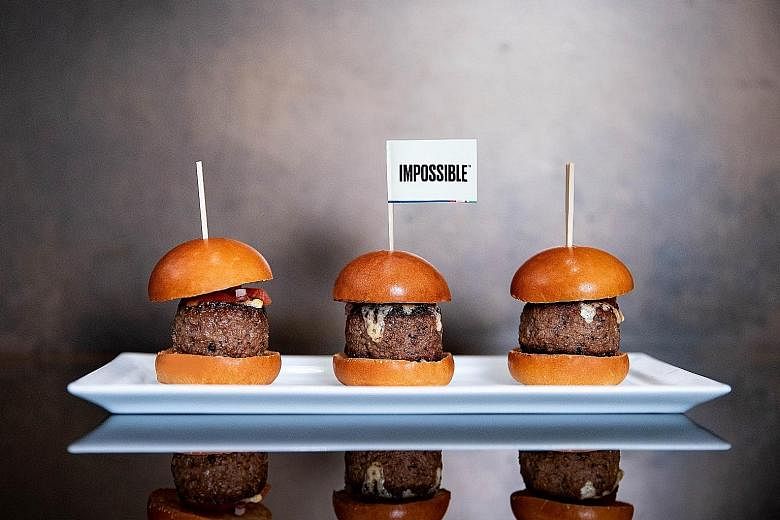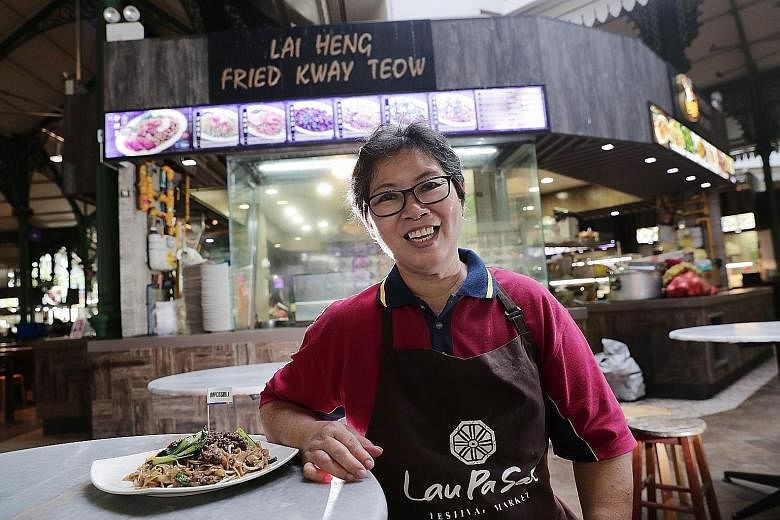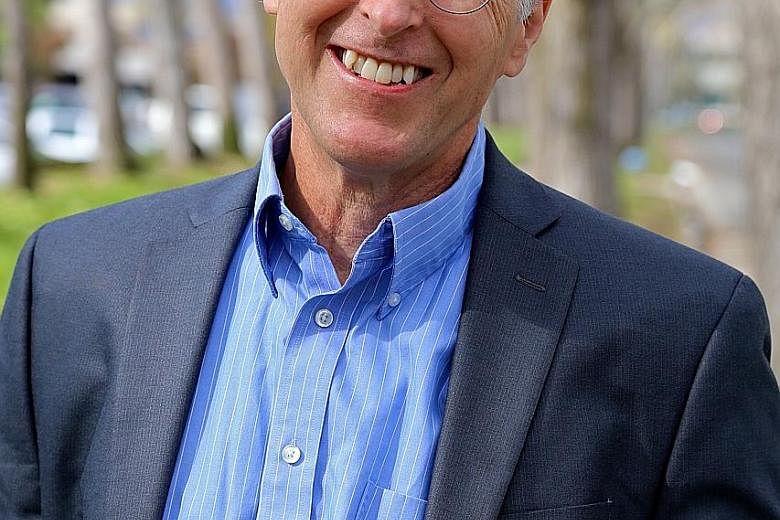It looks like meat, tastes like meat and even bleeds like meat. An American biochemist and his team of more than 100 scientists in Redwood City, California, have done the impossible - creating a plant-based meat that tastes almost like the real thing.
Impossible Foods launches its burger patties in Singapore today, partnering eight restaurants which are offering dishes made with the meat substitute. These range from sliders to Beef Wellington.
The product was launched in the United States in 2016, and more than 5,000 restaurants there now serve it. It debuted in Hong Kong last year, and is served in over 150 restaurants. Singapore is the second city outside the US to have the product.
Dr Patrick Brown, 64, chief executive and founder of Impossible Foods, started the company in 2011 to create meat and dairy products that would satisfy meat lovers and, at the same time, reduce the environmental impact caused by animal farming, especially the production of beef, which he calls "the single most destructive production process on earth".
His quest is not entirely quixotic. Serious investors including Microsoft founder Bill Gates, GV (formerly Google Ventures) and Temasek have come on board, anticipating that more consumers will want healthier and more sustainable sources of protein.
Dr Brown said his product uses 4 per cent of the land area usually required to produce beef, one-tenth of the water and a fraction of the fertilisers, and produces one-tenth the greenhouse gas emissions.
The original Impossible Burger was made with wheat and potato protein but, in January, the company launched version 2.0, made with soya protein, so it is now also gluten-free, besides being free of hormones and antibiotics.

A 113g serving contains 240 calories, 14g of fat and no cholesterol, compared with a similar-sized beef patty, which has 290 calories, 23g of fat and 80mg of cholesterol.
When he started, Dr Brown, who has followed a plant-based diet for 15 years, wanted to figure this out: What makes meat delicious?
He recruited a team of scientists to find out, offering them the chance to work on what he called "the most important scientific problem in the world".
"You don't offer them money," he said. "You offer them the opportunity to work on an incredibly difficult problem. Their first task was to understand why meat tastes like meat."
The answer is heme (say "heem"), a molecule found in humans, animals and plants. Released in meat during cooking, it creates what he calls an explosion of flavours and aromas that makes people crave meat.
Impossible uses heme from nodules in the roots of the soya plant, called soy leghemoglobin.
Dr Brown said soya farmers were surprised when the pea-sized nodules were cut open, revealing the insides to be bright red.
To scale the production of heme, the team took the DNA of soya plants and implanted it into ge-netically engineered yeast. The yeast is fermented to produce large amounts of heme.
That molecule is the reason why Impossible Burgers "bleed", look red when cooked medium-rare and taste different from vegetable burger patties.
Impossible now has a 67,000 sq ft plant in Oakland, California, that produces the plant-based meat.
Dr Brown said the company is looking to increase capacity since the plan is to make the product available for retail in the US later this year, and eventually in Asia too.
For a product that aims to be sustainable, it travels a long way to get to this part of the world.
Dr Brown said the company is looking at opening a production facility in Asia in the next few years. He added that Impossible decided to launch the product in Hong Kong and Singapore because they are culturally diverse cities where many culinary influences come together.

Chefs who have used the product said they did not expect it to taste so much like beef.
Madam Wong Oi Choo of Lai Heng Fried Kway Teow at Lau Pa Sat has never eaten beef because of religious reasons. "I didn't know beef could taste so good," she said.
Her staff cooked the plant-based meat with black bean sauce, ginger and with Sichuan flavours, among other experiments.
Executive chef Joshua Brown of Cut by Wolfgang Puck at Marina Bay Sands said: "I was highly sceptical at first and was pleasantly surprised. It was not what I was expecting. It checked all the boxes. Flavour-wise, it is very close to meat. The texture is there."
The restaurant is serving The Impossible Slider ($18++ for three), with mini patties sandwiched between brioche buns with smoked shallot jalapeno marmalade, aioli, ketchup and sweet pickles.
Meanwhile, work continues in Redwood City on new products, among them plant-based pork, chicken and even fish.
Is plant-based bacon an impossible dream?
Dr Brown said: "It is on the longer list, but it is definitely doable."
Follow ST's Food Editor Tan Hsueh Yun on Facebook here.




